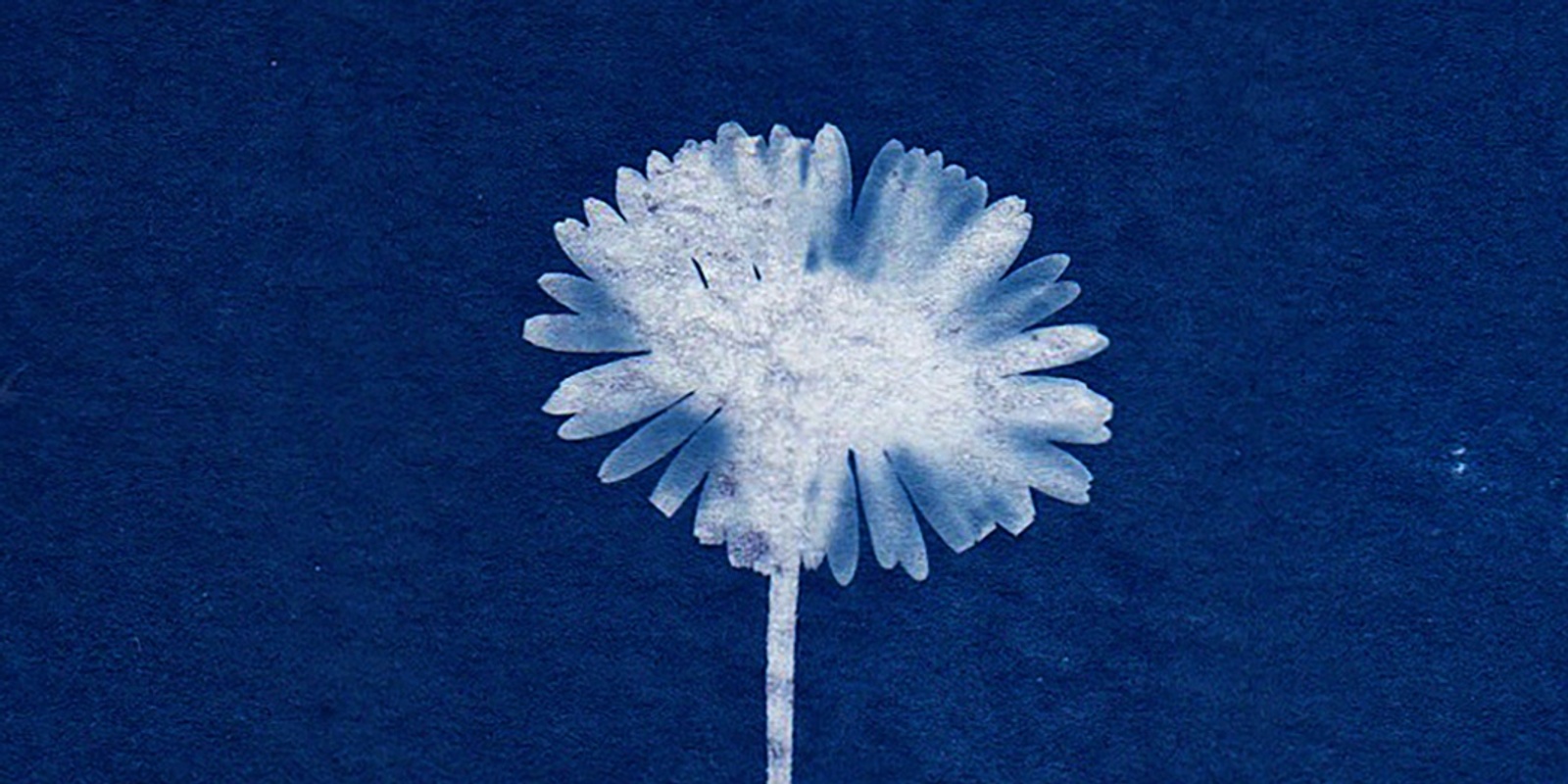Kids workshop: Create your own cyanotype artwork!
Event description
Kids Workshop: Create Your Own Cyanotype Print on Paper
As an addition to Kate Golding's 'Labours of Love' exhibition at PCP, we are thrilled to offer an exclusive cyanotype workshop for kids hosted by the artist herself. This hands-on experience will provide participants with an opportunity to delve into the world of cyanotype and create their very own unique cyanotype print on paper. With the artist's guidance, participants will embark on a creative journey, exploring the camera-less intricacies of this 19th century photographic process.
In this class, mother and visiting artist Kate Golding will lead a collaboration between children and their adult caregivers to playfully to make art together.
Kate Golding will guide participants through each step of the process from placement of objects to exposing their compositions to light, witnessing the transformation as the cyanotype blueprint emerges. By the end of the workshop, each participant will walk away with their own original cyanotype artwork on paper.
WORKSHOP DETAILS
Cost:
$35 Members / $50 Non Members
Prerequisite:
Toddlers must be accompanied by their adults throughout the class
Materials:
- A fee for materials is included in the cost of the course
- Objects for printing process to be supplied by participants
- Should participants wish to frame their artworks, framing advice and discounts will be available post workshop
Participants to bring:
- Participants are encouraged to bring along a selection of flat objects they would like to use for the printing process. Some examples include, but are not limited to, cut out paper shapes, feathers, lace, leaves, and pressed flowers.
- Aprons
Access:
The King Street Arts Centre is fully accessible by wheelchair via King Street entrance, although building management locks this after hours and on the weekend. To ensure easy access or for any clarification please contact by email at info@pcp.org.au and we will be happy to help.
Not a Member? Become a Member and receive discounts for all PCP events, workshops and more.
About the artist:
Kate Golding is a settler Australian of English ancestry based in Melbourne on unceded Wurundjeri Woi wurrung land. She is a mother artist, educator and researcher. Golding completed a Master of Fine Arts in 2018 at the Victorian College of the Arts where her research focused on critiquing the memorialisation of colonial histories through the use of photographic processes.
Golding has exhibited both nationally and internationally. She presented her first public art commission, 'Near this spot' in Gordon Reserve for PHOTO 2021 International Festival of Photography in Melbourne. Most recently she co-authored 'BLAK COOK BOOK: New Cultural Perspectives on Cooks' Cottage. A set of provocations' (2021) with Dr Paola Balla and Dr Clare Land, published by the City of Melbourne.
Golding has previously worked as a school teacher in Japan, England and Australia, a sessional lecturer in Alternative Photographic Processes at RMIT University and a Masters program mentor at Photography Studies College, Melbourne. She is a regular guest speaker at universities and primary caregiver to a young child.
What's a cyanotype?
A cyanotype is a camera-less photographic printing process that produces a cyan-blue print. It is a non-silver process, meaning it does not require the use of traditional silver-based photographic materials. The cyanotype process was first developed in the mid-19th century by Sir John Herschel, an English scientist.
Cyanotypes are known for their distinctive cyan-blue color, which gives them their name. They have a characteristic appearance with a high level of detail and a unique tonal range. The process is often used for creating photograms (also known as cameraless photography) by placing objects directly onto the treated paper and exposing them to light. Cyanotypes can also be made from digital negatives or by using contact printing with translucent materials.
Tickets for good, not greed Humanitix dedicates 100% of profits from booking fees to charity

